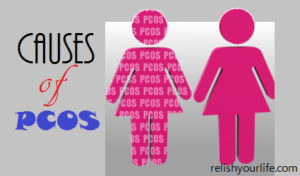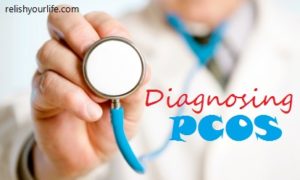There are a number of ways to manage the symptoms and the impact of PCOS, so it is important to start early after diagnosis.
The key to managing PCOS includes:
- A good understanding of how it’s caused and the effect of PCOS on the body
- A healthy approach to eating and physical activity
- Appropriate medical therapies

Managing PCOS with lifestyle
A healthy lifestyle is one of the most important aspects of managing PCOS successfully. A healthy diet will ensure adequate intake of nutrients, vitamins and minerals. Loss of excess weight may reduce the severity of some symptoms and will reduce the risk of developing type 2 diabetes and cardiovascular disease. Even a five to ten per cent weight loss can have significant health benefits, including improved mood and fertility, more regular menstrual cycles, and a reduced risk of diabetes.
Being physically active increases energy levels, helps with self-confidence and motivation and reduces anxiety and depression.
Managing PCOS with medical therapies
These therapies may include:
- The oral contraceptive pill
- Insulin sensitising drugs like Metformin
- Hormones that are called Gonadotrophins
- Testosterone lowering drugs
- Weight loss drugs
- Antidepressants
- Anti-anxiety drugs
Possible side effects*
Some of the more common side effects associated with hormonal contraceptive medication include:
- Mood changes
- Weight gain or loss
- Bloating
- Breast tenderness
- Irregular bleeding
*These side effects can differ depending on the oestrogen and progesterone content of the pill/device.
Fertility
Some women with PCOS may experience reduced fertility or “sub fertility” where it may take longer to conceive or they may need further medical assistance to achieve a pregnancy. There are a number of things which can be done to increase the likelihood of becoming pregnant and treatments are available for it. As per a study 60% of women with PCOS become pregnant without medical help.
Surgery for improving fertility
Ovarian drilling is a surgical procedure that can increase ovulation. This is performed using a laparoscope. It is a minimally invasive procedure where an incision is made in the abdomen under a general anaesthetic. Small holes are drilled in the surface of the ovary to remove tissue that produces excessive amounts of androgens (male hormones such as testosterone). Following ovarian drilling, ovulation is often restored for up to 6-12 months.
Possible side effects
Side effects associated with ovarian drilling include a small risk of scar formation around the ovaries and damage to the bladder, bowel or blood vessels.
Weight Reduction
Loss of excess weight may reduce the severity of some symptoms and will reduce the risk of developing further complications associated with PCOS. Even a small weight loss of 5 % can reap good benefits.
As hormones involved in controlling appetite and hunger aren’t regulated properly in some women with PCOS hence weight management gets difficult.
Benefits of weight loss with PCOS
- Reduce insulin resistance by about 50%
- Restore ovulation
- Regulate menstrual cycles
- Reduce pregnancy complications
- Improve fertility
- Improve health during pregnancy
- Improve the health of a child during pregnancy
- Improve emotional health (self-esteem, anxiety, depression)
- Reduce risk factors for diabetes and heart disease
Surgery to assist weight loss
Some women with PCOS may need medical assistance to help with weight loss. The effect of obesity surgery has been assessed in women who have PCOS. Weight loss surgery is to be considered as a last resort or if BMI is above 40.
Lifestyle improvements
Weight loss is best achieved through a combination of lifestyle changes – a healthy diet and physical activity. It is not always easy to make changes to lifestyle. It is suggested to eat more healthy foods and make exercise a regular part of life. Learning and understanding about goal setting can be helpful. It is also suggested to take advice of practising dietician to set and achieve goals.
Read more about PCOS, follow the links




